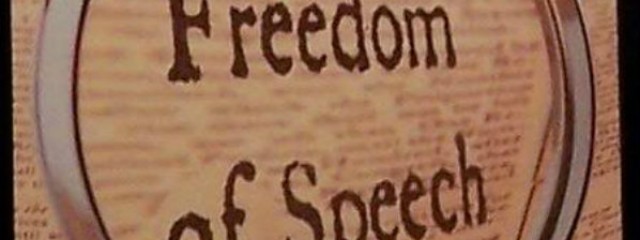Freedom Rights Project’s Aaron Rhodes blogging from the Human Rights Council in Geneva
UN Special Rapporteur on minority issues Rita Izsák reported to the Human Rights Council on 18 March, focusing on “hate speech and incitement to hated against minorities in the media.”
In the report, it is acknowledged that “[t]here is no universally accepted definition of ‘hate speech,’” and that the concept poses an intrinsic problem vis a vis freedom of expression.
“Nevertheless,” the report continues, “as stressed by the Special Rapporteur on the promotion and protection of the right to freedom of opinion and expression, far from being incompatible, the right to freedom of opinion and expression and the prohibition of incitement to hatred are ‘mutually supportive’, as the public debate of ideas as well as interfaith and intercultural dialogue can prevent hate and intolerance.” Not at all clear what this means…
The report notes that “lack of clear definitions of the content and elements of the prohibition of advocacy of national, racial or religious hatred that constitutes incitement to hatred, in legal systems, may lead to misapplication of the law, including the use of anti-hate speech legislation to persecute and suppress critical and dissenting voices.”
Evidence of that very tendency was manifested immediately.
In discussion in the Human Rights Council, Russia praised hate speech legislation, referring to the need to monitor “hate speech“ in Ukraine, speaking of the ignition of “nationalistic fires in Ukraine.” Recall that the Russian government used legislation banning hate speech to crush an NGO that defended the human rights of Chechens, claiming the group incited racial and religious hatred.
After proclaiming that it fully supports minority rights, China praised hate speech legislation, noting that freedom of expression was “not an absolute right,” and that speech on the Internet needed to promote the “norms of civilization” and “harmony.” The Chinese government would “punish criminal speech that promotes hate.”
It appears that hate speech legislation enjoys virtually unanimous support. But the US delegation raised the following caveats:
“We disagree with the Special Rapporteur’s focus on legislation prohibiting any advocacy of national, racial or religious hatred that constitutes incitement to discrimination, hostility or violence. Unfortunately, legal prohibitions on incitement are often used to persecute members of minority groups and political opponents, raising serious freedom of expression concerns.
“Such laws, including blasphemy laws, tend to reinforce divisions rather than promote societal harmony. The presence of these laws has little discernable effect on reducing actual incidences of hate speech. In some cases such laws actually serve to foment violence against members of minority groups accused of expressing unpopular viewpoints.
“In addition, legal prohibitions can displace societal efforts to combat intolerance. This occurs because disputes over hate speech are then seen as matters for courts to decide rather than society at large.
Combating hate speech requires a change in the societal attitudes that give rise to discriminatory views. Prohibiting speech is a poor, if not counterproductive, means of achieving that goal.”








 Freedom Rights Project
Freedom Rights Project